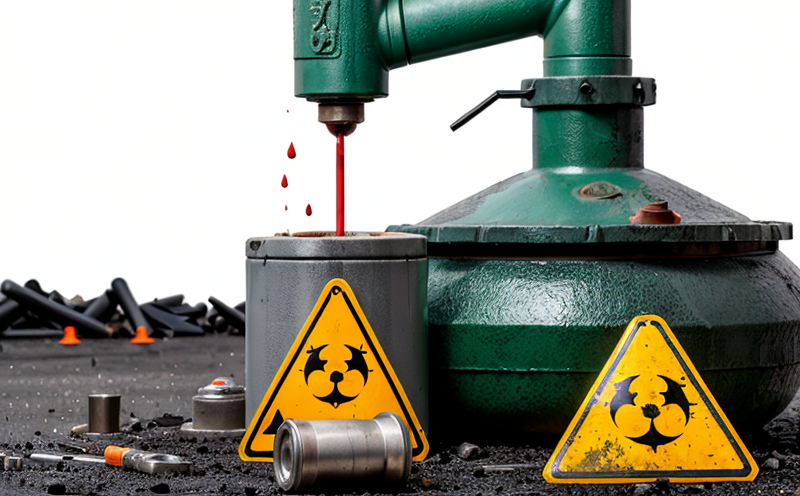Biofuel Hazardous Compound Screening
The biofuel industry has seen significant growth due to its environmental benefits and sustainability. However, the presence of hazardous compounds in biofuels can pose serious risks to human health and the environment. Therefore, it is essential to screen these fuels for harmful substances before they enter the market or are used in industrial processes.
At our laboratory, we offer a comprehensive service dedicated to identifying and quantifying hazardous compounds in biofuels. This screening process ensures that biofuels meet regulatory standards and do not pose any risks to users or ecosystems. Our approach is based on international standards such as ISO 17820:2019 for biodiesel quality specifications, ASTM D6751-21 for biodiesel fuel blends, and EN 14541:2013 for hydrotreated vegetable oil (HVO).
Our testing process involves several critical steps. Firstly, we receive the biofuel sample and perform a preliminary examination to determine its type and composition. This step is crucial as it sets the foundation for accurate analysis. Next, we use advanced analytical techniques such as gas chromatography-mass spectrometry (GC-MS), high-performance liquid chromatography (HPLC), and Fourier transform infrared spectroscopy (FTIR) to detect hazardous compounds.
Once identified, these compounds are quantified using precise measurement methods that comply with international standards. Our lab ensures that all results meet the required thresholds for safety and environmental protection. For instance, we focus on detecting harmful substances like polycyclic aromatic hydrocarbons (PAHs), benzene, toluene, ethylbenzene, xylenes (BTEX), and other potentially carcinogenic compounds.
The significance of this service cannot be overstated, especially in the context of increasing biofuel production. By identifying hazardous compounds early in the process, we enable manufacturers to take corrective actions if necessary. This proactive approach not only enhances compliance with legal requirements but also promotes safer fuel use across various sectors including transportation and energy.
Our expertise in this area has made us a trusted partner for many leading companies involved in biofuel production and distribution. We pride ourselves on providing reliable, accurate data that supports informed decision-making throughout the supply chain.
Benefits
- Promotes Compliance: Ensures adherence to international standards such as ISO 17820:2019 and ASTM D6751-21, which are crucial for regulatory compliance.
- Enhances Safety: Identifies potentially harmful substances in biofuels before they reach the market or industrial processes.
- Sustains Reputation: Maintaining a high standard of quality helps protect brand reputation and consumer trust.
- Supports Innovation: Allows for continuous improvement through understanding current risks and potential improvements in fuel composition.
The benefits extend beyond just the immediate detection capabilities. By offering this service, we contribute to the broader goal of sustainable development by ensuring that biofuels play a responsible role in reducing carbon footprints while minimizing adverse impacts on public health and ecology.
Customer Impact and Satisfaction
The impact of our Biofuel Hazardous Compound Screening service extends far beyond mere compliance checks; it significantly enhances the overall quality assurance process. For customers, this means peace of mind knowing that their biofuels are safe and reliable.
We achieve high customer satisfaction through meticulous testing processes coupled with transparent communication about findings. Our reports provide clear insights into any detected hazardous compounds along with recommendations for necessary actions. This approach fosters trust between suppliers and buyers by ensuring mutual accountability towards maintaining strict quality standards.
In addition to enhancing brand image, our service also supports long-term business relationships. By demonstrating commitment to safety and environmental responsibility early in the supply chain, we help establish a reputation as a reliable partner within the industry. This can lead to more consistent orders and opportunities for collaboration on new projects involving biofuels.
Moreover, satisfied customers are likely to recommend our services to others seeking similar assurance regarding their biofuel supplies. Such referrals not only expand our reach but also reinforce our position in the market as a leader in this specialized field of testing.





